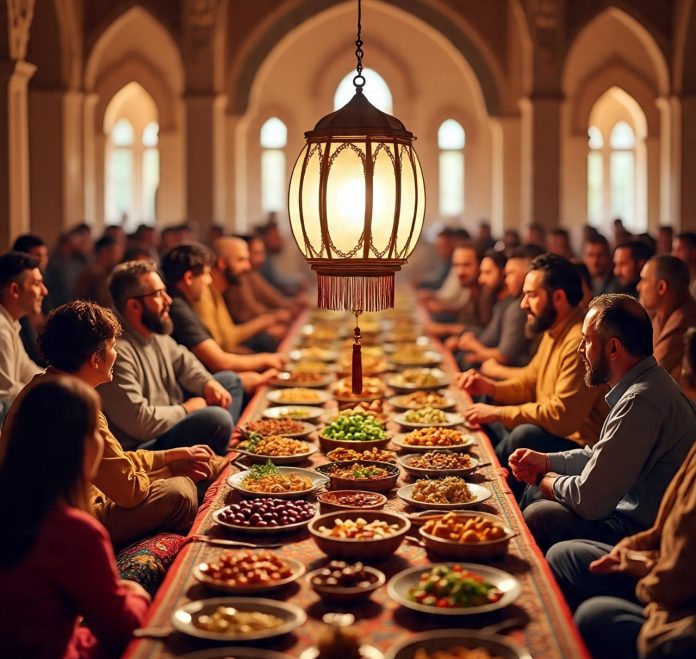Ramadan, the ninth month of the Islamic calendar, is a sacred time when Muslims around the world fast from dawn to sunset. Fasting, or sawm, is one of the Five Pillars of Islam, making it an essential act of worship and obedience to Allah. Beyond refraining from food and drink, fasting in Ramadan carries deep spiritual, moral, and social significance, serving as a transformative experience for the believer.
Spiritual Growth and Taqwa
The primary purpose of fasting is to attain taqwa, or God-consciousness. Allah says in the Qur’an:
“O you who believe! Fasting is prescribed for you as it was prescribed for those before you, that you may attain taqwa.” (Qur’an 2:183)
When Muslims abstain from eating, drinking, and sinful actions from sunrise to sunset, they are reminded of Allah’s constant presence and their ultimate accountability to Him. This daily discipline nurtures mindfulness of Allah, strengthens the heart, and brings believers closer to their Creator. Fasting becomes a shield, protecting one’s faith and sharpening one’s awareness of right and wrong.
Self-Discipline and Patience
Ramadan teaches the values of self-restraint and patience. In a world filled with temptations and distractions, fasting trains the soul to control desires. Saying “no” to permissible things like food and water for the sake of Allah strengthens one’s ability to resist what is prohibited. This builds resilience and self-control, qualities essential for personal growth and moral integrity.
Moreover, fasting cultivates patience in the face of hunger, thirst, and fatigue. The Prophet Muhammad ﷺ described fasting as half of patience, emphasizing that enduring hardships with faith is a mark of true strength.
Compassion and Social Solidarity
One of the most beautiful aspects of Ramadan is how it fosters empathy and compassion. When the wealthy and privileged experience hunger, they develop a deeper understanding of the struggles of the poor. This awareness leads to increased acts of charity, kindness, and generosity.
Zakat al-Fitr, the mandatory charity given at the end of Ramadan, ensures that the less fortunate can also celebrate Eid with joy. Throughout the month, Muslims are encouraged to share food, feed the hungry, and extend a hand of support to those in need. In this way, Ramadan strengthens community bonds and promotes social equality.
Spiritual Rewards and Forgiveness
Ramadan is known as the month of mercy and forgiveness. The Prophet ﷺ said: “Whoever fasts in Ramadan with faith and seeking reward, all his past sins will be forgiven.” (Bukhari, Muslim)
Every act of worship in Ramadan carries multiplied rewards. Fasting itself is considered so beloved to Allah that its reward is beyond measure. In a Hadith Qudsi, Allah says: “Fasting is for Me, and I will reward it.” This highlights the unique and personal connection between the fasting believer and Allah.
The last ten nights of Ramadan hold even greater significance, especially Laylat al-Qadr (the Night of Decree), which the Qur’an describes as “better than a thousand months” (Qur’an 97:3). Worship during this night brings immense blessings, forgiveness, and elevation in ranks.
Health and Well-Being
While the spiritual dimension is paramount, fasting also offers physical benefits. By giving the digestive system a break, fasting helps detoxify the body and promotes overall health. It encourages moderation in eating, breaking the cycle of overindulgence. The discipline of balanced eating during suhoor and iftar can instill healthier lifestyle habits that extend beyond Ramadan.
A Month of Transformation
Ramadan is more than just refraining from food and drink; it is a month of transformation. Believers strive to abandon sinful behavior, increase their recitation of the Qur’an, engage in night prayers, and develop good manners. The habits formed in this sacred month serve as a spiritual reset, carrying positive effects into the rest of the year.
Fasting in Ramadan is not merely a ritual—it is a journey of purification, self-improvement, and nearness to Allah. It teaches self-discipline, nurtures compassion, strengthens community bonds, and opens the doors of forgiveness and mercy. For Muslims, Ramadan is a precious opportunity to renew their faith, cleanse their hearts, and emerge spiritually rejuvenated.
